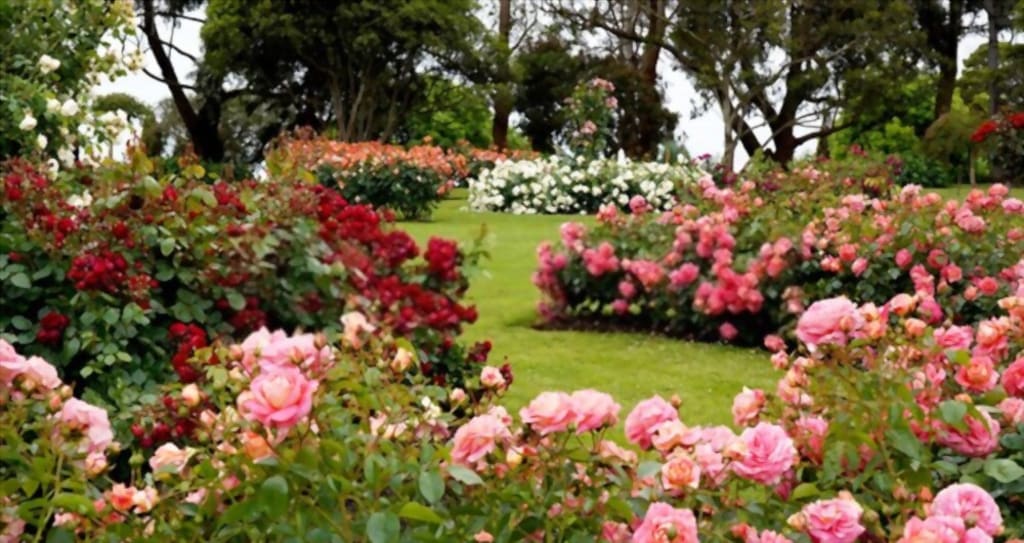The Benefits of Gardening
Why Growing Your Own Food is Good for You and the Environment

Introduction
Gardening is a popular hobby that has captured the attention of people all around the world. Not only is it a great way to spend time outdoors, but it also provides a range of health, environmental, economic, and community benefits. This article will outline the advantages of gardening and why you should consider starting your own garden.
Health Benefits of Gardening
Physical Health Benefits
Exercise: Gardening involves a range of physical activity such as digging, planting, and weeding, which can help improve cardiovascular health and build muscle strength.
Vitamin D: Exposure to sunlight while gardening can increase vitamin D levels in the body, which is essential for healthy bones and immune function.
Reduced Stress: Gardening has been shown to reduce stress levels and promote relaxation.
Mental Health Benefits
Stress Reduction: Gardening can promote a sense of calm and reduce stress levels, contributing to a greater sense of well-being.
Increased Happiness: The act of nurturing plants and watching them grow can increase feelings of happiness and satisfaction.
Improved Self-Esteem: Gardening can provide a sense of accomplishment and boost self-esteem as plants grow and thrive.
Environmental Benefits of Gardening
Reduced Carbon Footprint
Growing your own food reduces carbon emissions by decreasing the distance that food needs to travel to reach your plate.
Decreased Dependency on Fossil Fuels
Growing food locally reduces the need for fossil fuels used in transportation.
Improved Soil Health
Gardening can improve soil health as it promotes the use of organic fertilizers and reduces the need for harmful chemicals.
Increased Biodiversity
Gardens support the growth of a wide range of plant and insect species, contributing to increased biodiversity in your local ecosystem.
Economic Benefits of Gardening
Reduced Food Expenses
Growing your own food can save money spent on groceries, especially when taking into account the high costs associated with buying fresh produce.
Increased Property Value
A well-maintained garden can increase the value of your property.
Potential Income Source
Surplus vegetables and herbs can be sold at farmers' markets or to local restaurants, providing an extra source of income.
Gardening Techniques and Tools
Raised Beds
Raised beds are a popular technique for growing vegetables and can increase yields and improve soil health.
Composting
Composting is an effective way to recycle food waste and create nutrient-rich soil for your garden.
Companion Planting
Companion planting involves growing certain plants together to promote optimal growth and reduce pests and diseases.
Irrigation Systems
Irrigation systems, such as drip irrigation, can be used to minimize water waste while ensuring plants receive the necessary moisture.
Tools for Gardening
Essential tools for gardening include shovels, spades, trowels, and pruning shears.
Plants for Gardening and Their Benefits
Fruits and Vegetables
Growing your own fruits and vegetables can improve your health by providing fresh, nutrient-dense produce.
Herbs
Herbs can add flavor and nutrients to meals while also providing medicinal benefits.
Flowers
Flowers add aesthetic value to a garden and can also attract pollinators, contributing to increased biodiversity.
Gardening and Sustainable Living
Zero Waste Gardening
Zero waste gardening involves reducing waste in the garden by composting, reusing materials, and choosing sustainable gardening practices.
Water Conservation
Water conservation techniques such as rain barrels and drought-tolerant plants can help reduce water waste in the garden.
Seed Saving
Seed saving involves saving seeds from plants each growing season, promoting genetic diversity and reducing the need to purchase new seeds.
Community Gardening
Benefits of Community Gardening
Community gardening promotes social connections and provides an opportunity for shared learning and resources.
How to Start a Community Garden
Starting a community garden involves finding interested participants, securing a location, and planning the garden.
Maintaining a Community Garden
Maintaining a community garden involves scheduling regular workdays, implementing safety measures, and resolving conflicts.
Common Gardening Mistakes and How to Avoid Them
Overwatering
Overwatering can lead to plant disease and nutrient loss, so it's important to water plants appropriately based on their needs.
Underwatering
Underwatering can cause plants to dry out and wilt, so be sure to water plants regularly and monitor for signs of dehydration.
Failing to Rotate Crops
Failing to rotate crops can lead to nutrient depletion and the buildup of pests and disease in the soil, so plan accordingly.
Planting at the Wrong Time
Planting at the wrong time can result in poor growth and reduced yields, so it's important to research the best planting times for each type of plant.
Common Gardening Challenges and How to Overcome Them
Pest Control
Pest control techniques like crop rotation, companion planting, and natural pest repellents can help minimize the damage from garden pests.
Soil Quality and Nutrient Deficiency
Regular soil testing and the use of organic fertilizers can help improve soil quality and prevent nutrient deficiencies in plants.
Climate Conditions
Choosing plants that are well-suited to the local climate can help ensure success in gardening despite challenging conditions.
Harvesting and Storage
Proper harvesting and storage techniques, such as storing produce in a cool, dry place, can help extend the shelf life of garden-grown food.
Summary
Gardening provides a range of benefits for both individuals and the environment, including improved health, reduced carbon emissions, and increased biodiversity. With the right tools and techniques, you can start your own garden and enjoy these benefits for yourself.
FAQs
How much space do I need for a garden?
You can start a garden of any size, whether you have a large yard or just a small balcony or patio. Container gardening is a great option for those with limited space.
Can I start a garden if I don't have a yard?
Yes, you can start a garden using containers, window boxes, or community garden plots.
How much time does gardening take?
The time required for gardening varies depending on the size of your garden and the plants you choose, but it can be a rewarding hobby that can be adjusted to fit your schedule.
What are the best plants to grow for beginners?
Some easy to grow vegetables for beginners include tomatoes, lettuce, and beans. Herbs like basil and mint are also good in beginner gardens.
How do I deal with pests in my garden?
Natural pest control methods include handpicking, companion planting, and using natural pest repellents such as neem oil or garlic spray.
How can I make my garden more sustainable?
Implementing sustainable gardening practices such as composting, water conservation, and seed saving can help make your garden more environmentally friendly.
Can I earn money from my garden?
Yes, selling surplus produce or herbs at a farmers' market or to local restaurants can provide a potential source of income.
About the Creator
Mohammad Imran
✍️ Imran 🌟 Passionate content creator
📺 Sharing captivating stories and insightful perspectives
📝 Words that inspire and entertain
💡Join me on this creative journey! 🌍✨






Comments
There are no comments for this story
Be the first to respond and start the conversation.